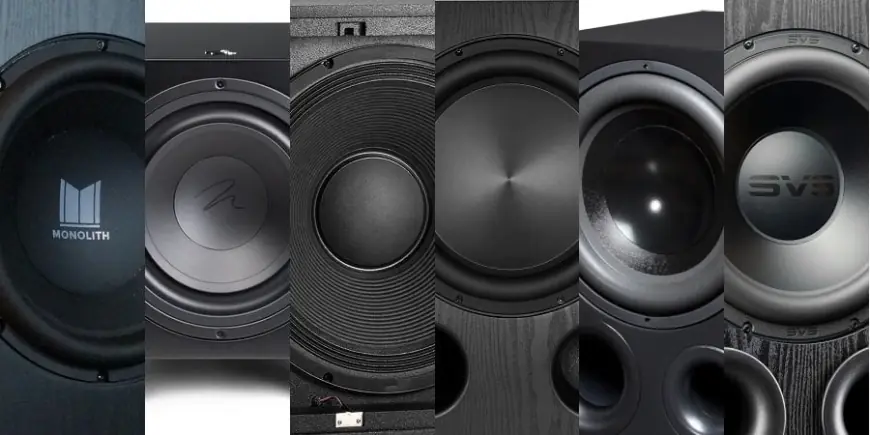Power Handling Demystified: RMS vs Peak Explained Clearly

If you’ve ever shopped for car speakers or amplifiers, you’ve probably been hit with two numbers: RMS and Peak Power. And if you're not deep into audio specs, these terms can feel confusing or even misleading. But understanding what they actually mean can help you avoid blowing your speakers—or wasting money.
Let’s break it down in plain terms so you know exactly what to look for, whether you're shopping entry-level gear or premium brands like Boss Audio.
?️ What Is RMS Power?
RMS (Root Mean Square) is the continuous power a speaker or amp can handle or deliver without distortion. This number reflects real-world performance—what your audio system can consistently manage day after day.
If a speaker is rated at 100W RMS, that means it can play cleanly at 100 watts of continuous power without burning out or distorting your music.
Why RMS Matters:
-
It tells you how much power your speaker can safely handle.
-
Helps you match your amp and speakers correctly.
-
Reflects quality more than flashy numbers.
When looking at brands like Boss Audio, always focus on RMS over peak—especially if you want reliable, everyday use.
? What Is Peak Power?
Peak Power is the maximum amount of power a speaker can handle for a short burst, like during a bass drop or a sudden spike in volume. But here’s the catch: speakers can only handle this level for a brief second.
A speaker that says 300W Peak but 75W RMS is really only good for consistent use at or under 75 watts. That 300W figure? It's mostly marketing—great on a box, not in real-life use.
? RMS vs Peak: An Analogy That Makes Sense
Imagine driving a car. Your RMS is your comfortable cruising speed—say, 65 mph. Your Peak is the moment you floor it to 100 mph to pass someone. You don’t drive at 100 all the time. Your car wouldn't last long if you did.
Same goes for speakers.
? How to Match RMS Power Between Components
To get the best performance (and protect your gear), match RMS ratings between your amplifier and speakers. For example:
-
If your Boss Audio amp pushes out 100W RMS per channel, pair it with speakers rated for 80–120W RMS.
-
Too much amp power? You risk damaging the speakers.
-
Too little? The speakers won’t hit their potential.
Pro Tip: Slightly underpowering speakers is okay, but be careful not to crank the volume to compensate—it leads to clipping and distortion.
? How Brands Display Power Ratings
Not all brands report RMS and Peak honestly. Reputable manufacturers usually highlight both, but sometimes less-known or budget options focus only on high peak numbers to appear more powerful.
Brands like Boss Audio often list both, but make sure you're reading the full specs. Look for:
-
RMS per channel at a specific ohm load (e.g., 100W RMS @ 4 ohms)
-
Total RMS for multi-channel amps
-
Matching speaker and amp specs to avoid mismatch
? Common Misconceptions About Power Ratings
? Myth #1: Higher Peak = Louder System
Not true. Loudness and clarity come from RMS power, sensitivity, and proper tuning.
? Myth #2: You Can Always Trust What's on the Box
Some brands inflate numbers or only share peak ratings. Do your homework—check the specs and real user reviews.
? Myth #3: All 100W RMS Speakers Sound the Same
Quality of components, voice coil materials, enclosure type, and tuning play huge roles. For example, Boss Audio speakers in a well-tuned enclosure may outperform a higher-priced brand in a poor setup.
? How to Use Power Ratings to Build a Better System
When designing your system:
-
Start with your amp’s RMS rating. That’s your baseline.
-
Choose speakers with a matching or slightly higher RMS rating.
-
Avoid mixing speakers with wildly different RMS ratings.
-
Don't pair a 500W RMS sub with a 150W RMS amp—underpowering subs hurts performance.
-
Use proper wiring, clean ground, and fuse protection.
Power ratings are only part of the picture. Placement, tuning, sound deadening, and your subwoofer installation kit (if applicable) all contribute to the end result.
? Wrapping It Up
When it comes to building a system that delivers clean, powerful sound without failures, RMS is king. Peak power might catch your eye, but RMS is what your gear actually lives by.
So next time you're comparing amplifiers or choosing a speaker upgrade—whether you’re looking at Boss Audio or any other brand—keep your eye on the real number that matters: RMS.
Your ears (and your wallet) will thank you
What's Your Reaction?
 Like
0
Like
0
 Dislike
0
Dislike
0
 Love
0
Love
0
 Funny
0
Funny
0
 Angry
0
Angry
0
 Sad
0
Sad
0
 Wow
0
Wow
0
Related Posts
The Top Healthcare Marketing Strategies to Grow Your Cl...
Rankingeek Marketi... Feb 20, 2026 0 9.9k
RAK ICC Company Formation Services in the UAE | Complet...
Dubai Business Adv... Feb 20, 2026 0 9.4k

















































